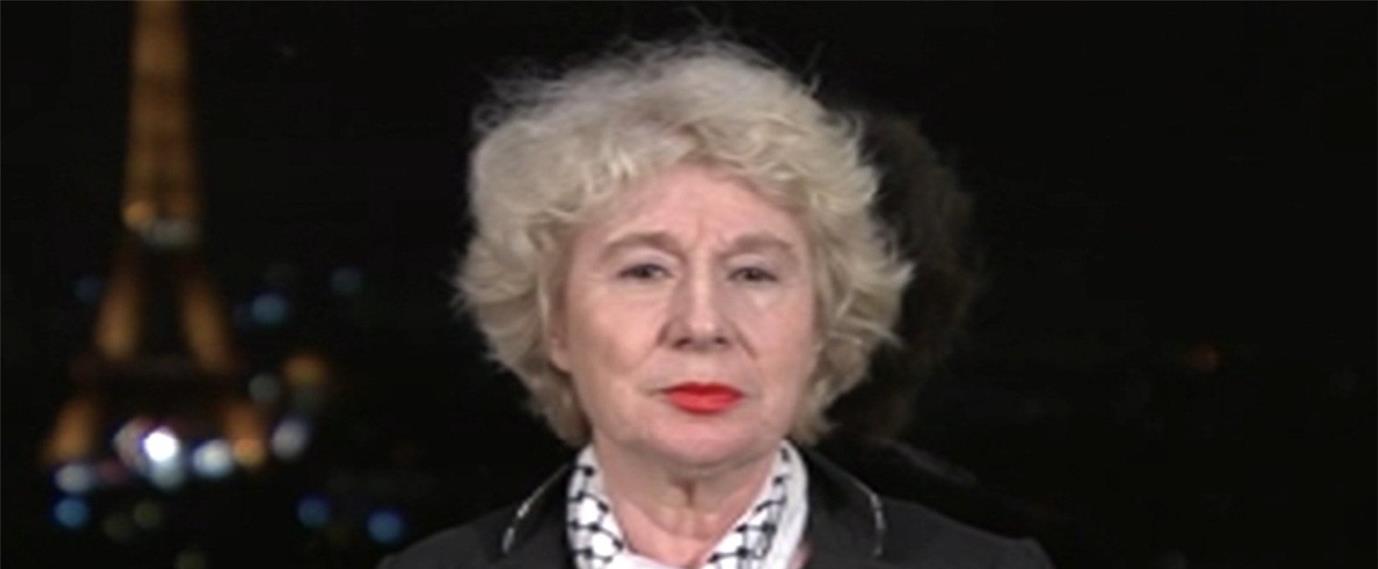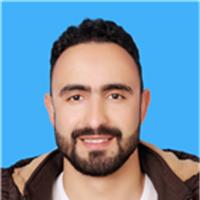رغم أنها عملت في وكالة الأنباء الفرنسية بين عامي 1980 و1989، إلّا أن أوليفيا زيمور، الصحفية السابقة في وكالة الأنباء الفرنسية والناشطة الحقوقية، تعترف بأنها لا تستطيع الحكم على تلك السنوات وتغطية الوكالة لأحداث المنطقة العربية ولا سيما تغطيتها لفلسطين، ومتغيرات هذه التغطية بين تلك السنوات والسنوات الراهنة، مفسرة الأمر بأنها لم تكن صاحبة عين سياسية إبان تلك الفترة.. "اسْتيقظتُ أثناء الانتفاضة الثانية"، تقول لمجلة الصحافة.
وتنبع أهمية شهادة زيمور من كون صاحبتها خبرت المكانين: مكان الصحفي ومكان صانع الحدث الذي يغطيه الصحفيون، فالزميلة السابقة في مهنة المتاعب قد تكون اليوم أشهر منظِّمة مظاهرات لصالح القضية الفلسطينية في فرنسا، ضمن جمعيات ومبادرات سياسية أسستها في بلدها، لعل أبرزها مؤسسة "أوروفلسطين"(EuroPalestine) ، إضافة إلى تأسيسها "مكتبة المقاوَمات"(Librairie des Résistances) ، وهي مكتبة مختصة في إرث وثقافة حركات المقاومة.
وردّاً على سؤالي عمَّن يقرر كيف تكون تغطية موضوع ما سياسياً داخل الوكالة؟ تؤكد زيمور أن للمراسلين في الخارج مساحة لا بأس بها يمكنهم استغلالها في تجسيد قناعاتهم التي قد تكون عكس قناعة الوكالات التي يشتغلون لحسابها؟.. "ورغم أنها (التغطيات) في بعض الأحيان تكون تحت طلب رئاسة التحرير، فإن المراسلين عادة ما يرسلون مقترحات المقالات وتغطية الأحداث وفقا لوجهة نظرهم الخاصة، مع تسليط الضوء على الوقائع التي يشهدونها".
تعرف زيمور أن العمل الإعلامي يتغيّر والمؤسسات نفسها تتغير، وبالتالي فهي تتجنب إسقاط تجربتها في وكالة الأنباء الفرنسية حتى نهاية الثمانينيات على عملها اليوم.. "كثيرا ما تكون تقارير المراسلين صادقة وموضوعية للغاية في طريقة تغطيتها، ولكنها يمكن أيضا أن تخضع لبعض الضغوطات من قبل حكومات الدول التي يوجد فيها المراسل أو لرقابة ذاتية يمارسها على نفسه، سيما تحت تهديد الابتزاز بمعاداة السامية".
كانت زيمور مسؤولة قسم "الصحة-الطب" في وكالة الأنباء الفرنسية، وأثناء ذلك وجدت أن العاملين في مجال الصحة لا يتمتعون بأي خطٍّ معلوماتي أو إخباري متخصص، على عكس العاملين في مجال الاقتصاد أو الرياضة، في حين أن هذا المجال كان في اطراد قوي وملحوظ وكانت الحاجة إليه هائلة. فمن داخل الوكالة اقترحتْ فكرة تقديم خدمة مختصة و"خطة عمل" لمتابعتها، لكن هذا الاقتراح بقي في أدراج الوكالة. في النهاية قررت تطبيق فكرتها بنفسها، حيث أسست مع زوجها وكالة أنباء مختصة في الأخبار الصحية وأدارتها.
كانت خطة طموحة -كما تقول- لأن إطلاق وكالة أنباء يحتاج إلى استثمارات مالية وبشرية وثقافية هائلة.. "كان الأمر صعبا ولكن مثيراً، ولقد نجحنا في هذا التحدي المتمثل في الجودة والاستقلالية وتسويق الوكالة للمهنيين في هذا المجال.. بعد 12 عاما، أصبنا بالتعب وأرهقتنا إدارة الموارد البشرية أمام التوسع الذي شهده مشروعنا.. كنا سعداء جدا أن تقرر وكالة رويترز شراء وكالتنا بعد دراسة جدية للسوق، وهي "وكالة الأنباء الطبية الدولية" (APM International) التي ما زالت مستمرة لغاية الآن وتقوم بعمل جيد حتى بدوننا".
عوائق مادية لإعلام حقوقي
وعن هذا الانتقال في حياتها من العمل الإعلامي إلى العمل السياسي الحقوقي (تأسيس "أوروفلسطين" عام 2002)، سألتُ زيمور: ألم يكن النضال ممكناً من داخل وسائل الإعلام؟ فأجابت "جاء بيع وكالتنا في وقت كنا فيه محاصرين بالسياسة الشارونية الوحشية، فوضعنا خبرتنا الصحفية في خدمة أفكارنا وتمكّنّا من إطلاق نداءات موقعة من قبل شخصيات عديدة معروفة من خلال مؤتمر صحفي حضرت فيه أيضاً شخصيات عربية ويهودية معادية للصهيونية، بعدها أتت فكرة إنشاء جمعيتنا، لأنه كان من الصعب التوقف عند هذا الحد لكون هذه المعركة كانت بالنسبة لنا أمرا مركزيا ما زلنا ملتزمين به أنا وزوجي".
وتضيف زيمور "لو كانت عندنا إمكانيات مادية لأنشأنا إذاعة أو قناة تلفزيونية مستقلة حيث يمكننا تقديم معلومات مضادة لتلك التي توفرها وسائل الإعلام المهيمنة التي هي بيد شركات مثل داسو (Dassault)، ولاغارديغ (Lagardère)، وروتشليد (Rothschild)".
وحين نضع أمامها سؤالا عمن يرسم السياسات الإعلامية الفرنسية اليوم: أهو الإعلام المكتوب أم الإعلام التلفزيوني؟ وأيهما يقود الآخر في صناعة الرأي العام؟
تؤكد زيمور ببساطة شديدة ووضوح رؤية أنه "في نظري أن النخب التي تمتلك المال والشركات المتعددة الجنسيات والبنوك والصناعات العسكرية، هي التي تملي سياساتها على السياسيين الذين بدورهم يؤثرون على وسائل الإعلام المملوكة لهذه الشركات نفسها".
ورغم ذلك تؤكد زيمور أن "التلفزيونات والإذاعات هي بالطبع الأكثر تأثيرا على الجماهير، على عكس الصحافة المكتوبة التي بدأت تتراجع مقروئيتها شيئا فشيئا"، حسب رأيها. وإذ تشير إلى تراجع الصحافة المكتوبة في التأثير فإنها لا تتردد في رسم صورة قاتمة للإعلام الفرنسي اليوم وحراجة وضع الصحفي المستقل.. "الصحفيون الذين يريدون الحفاظ على استقلاليتهم مثل ريتشارد لابيفيير ( (Richard Labévière) (1) غير مرحب بهم، أو يُقصون كما هو الحال مع دانييل ميرميت(Daniel Mermet) " (2).
في النهاية قلنا للسيدة زيمور: بما أن مجلتنا تخاطب الصحفيين، هل هناك رسالة توجهينها إلى الصحفيين العرب؟ وما هي أيضاً الرسالة التي توجهينها إلى صحفيي بلادك فرنسا إذا ما قرؤوا هذا الحوار؟
جوابها لم يخلُ من مرارة صحفية عركتها المهنة.. "ليست لديّ رسالتان مختلفتان لكلِّ جهة على حدة.. هناك -نادرا جدا- من هو مثل ألان غريش (3) الذي يمثل الواقع، وهناك من نود أن نتوجه إليهم بنصيحة وهي تغيير المهنة أو أن يسموا أنفسهم باسم آخر غير اسم الصحفيين".
هوامش
(1) كاتب وصحفي، رئيس تحرير مجلة "معهد الدراسات العليا للدفاع الوطني"، من مؤلفاته "اهدن لعنة المسيحيين العرب".
(2) صحفي ومقدم إذاعي فرنسي.
(3) رئيس جمعية الصحفيين الفرنسيين المتخصصة في شؤون المغرب العربي والشرق الأوسط (AJMO).








































